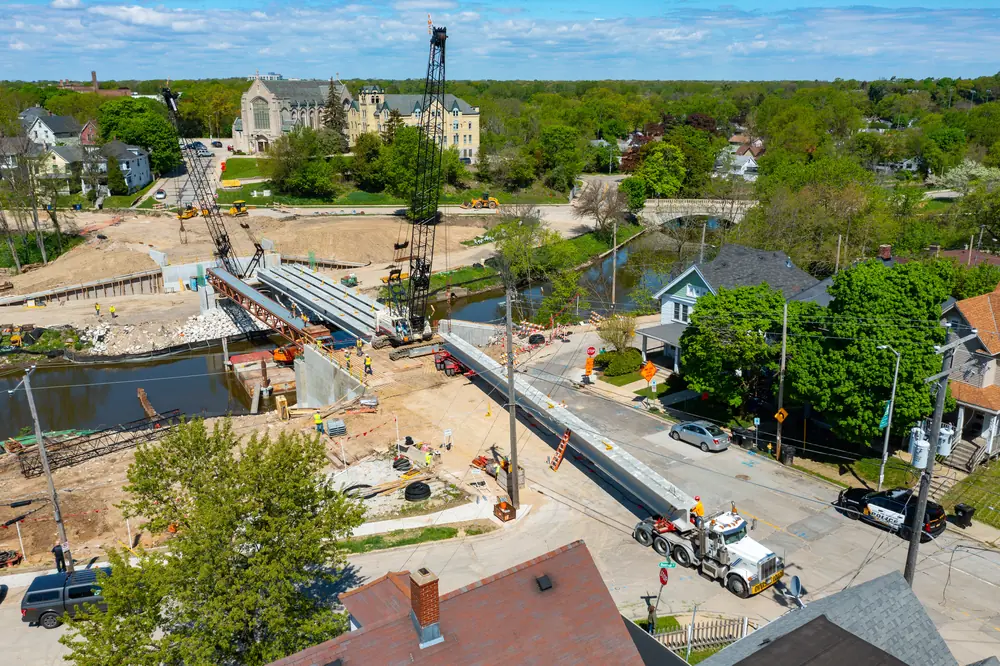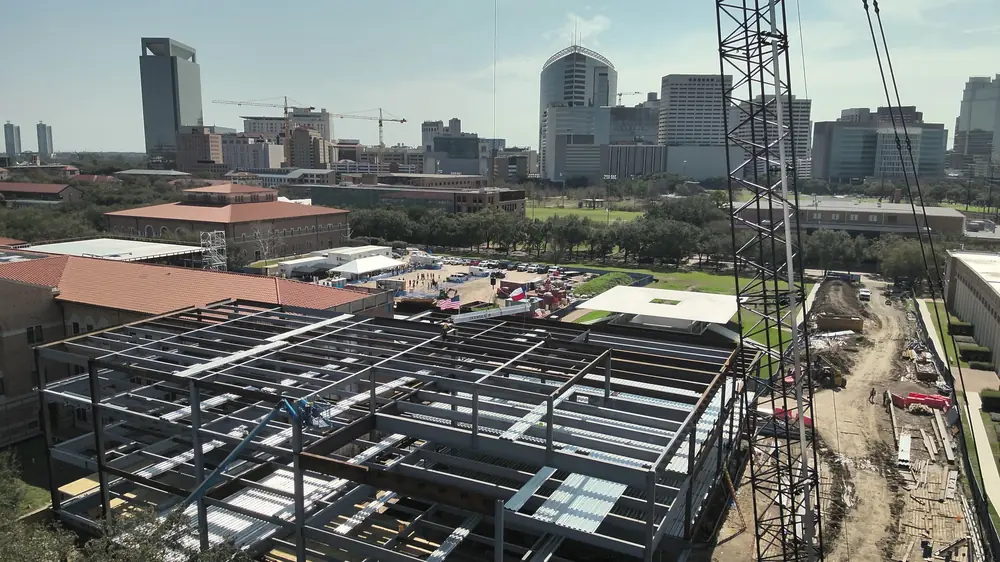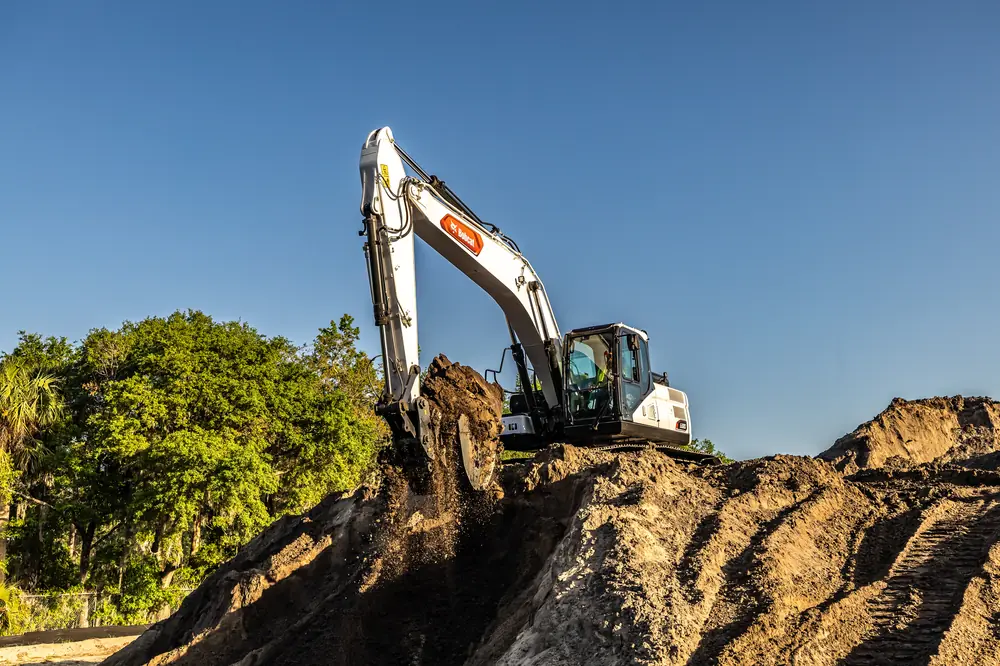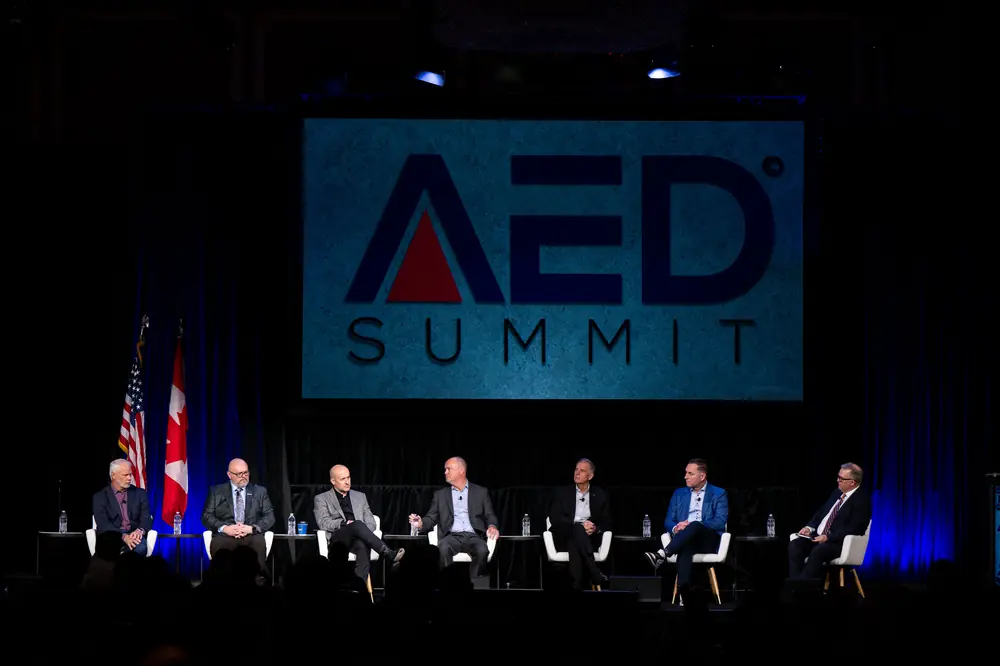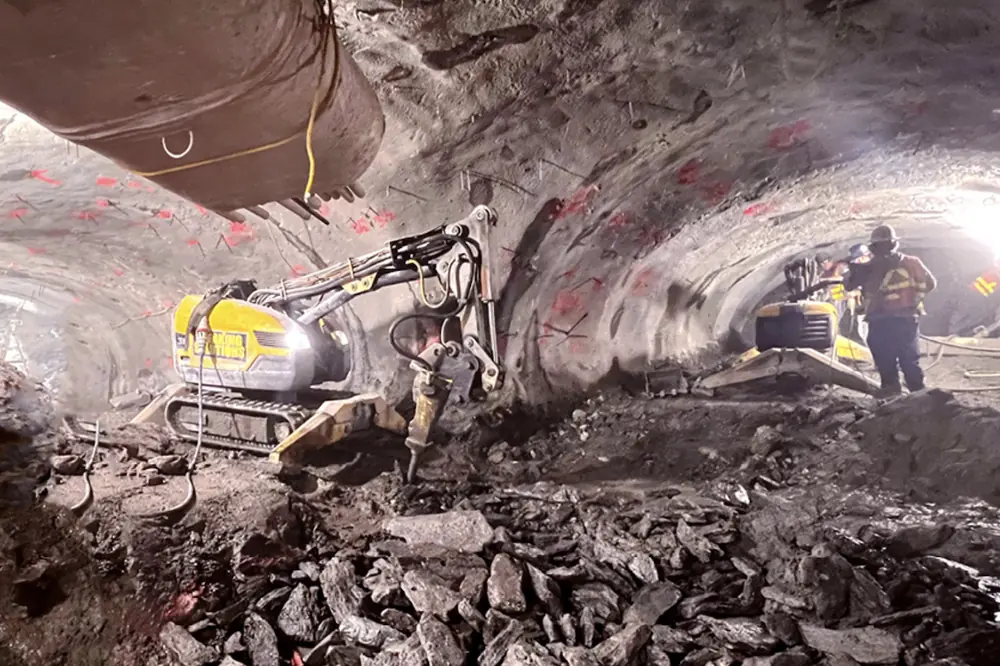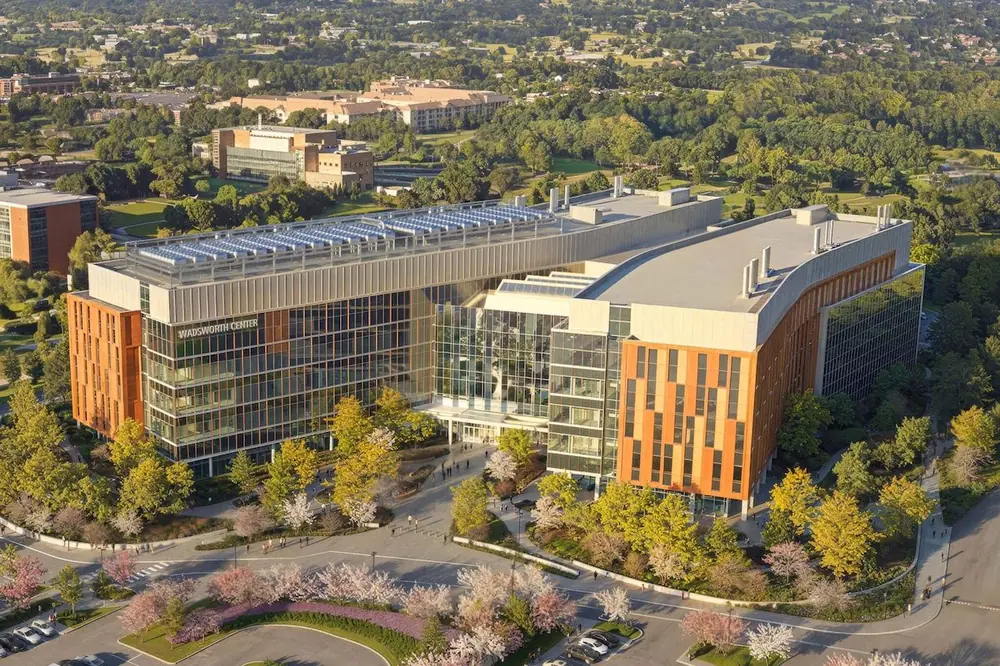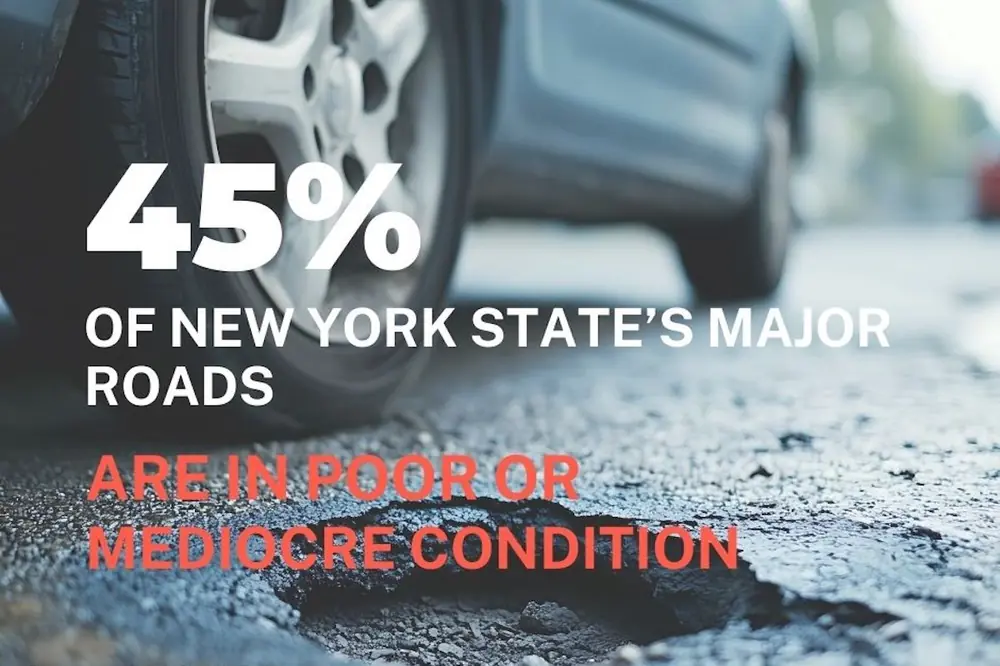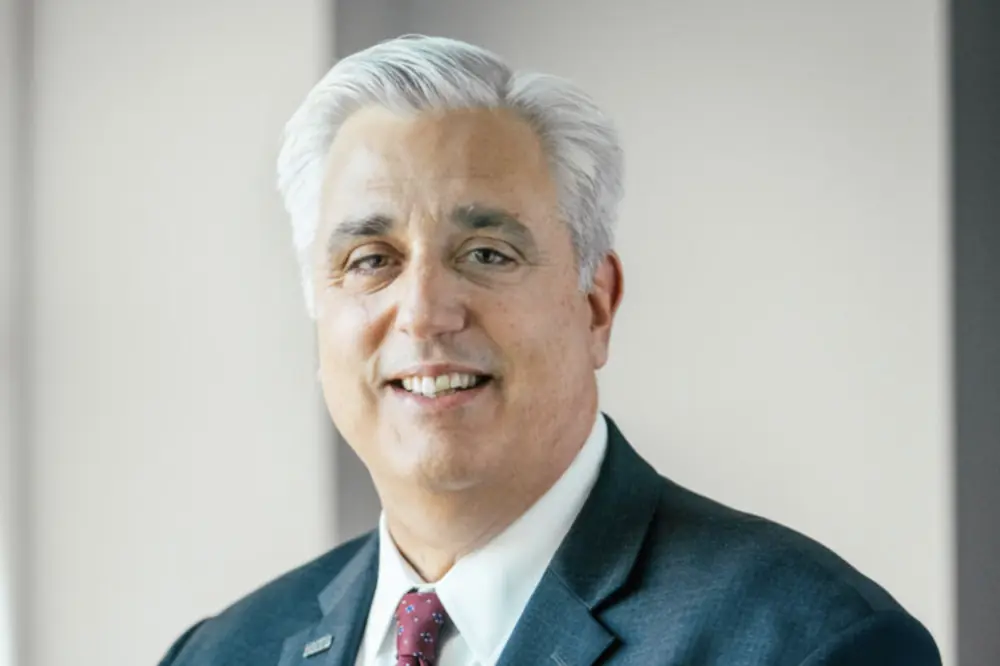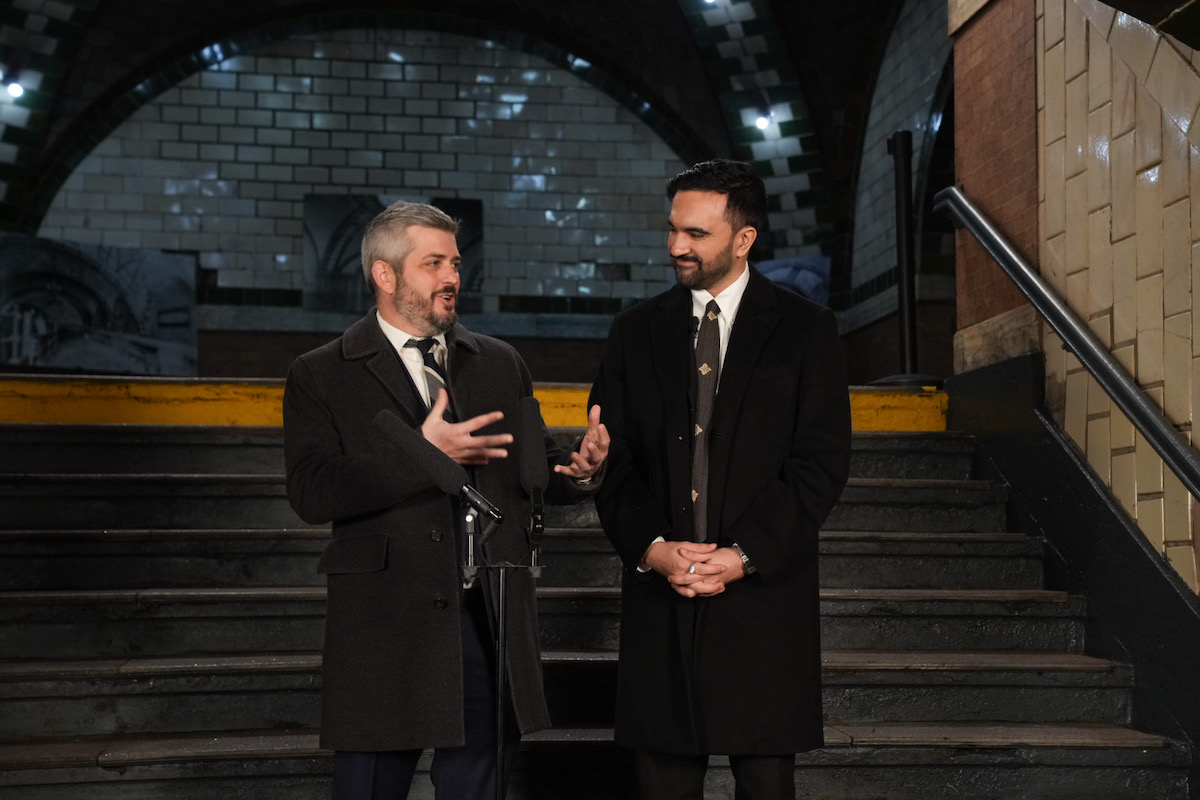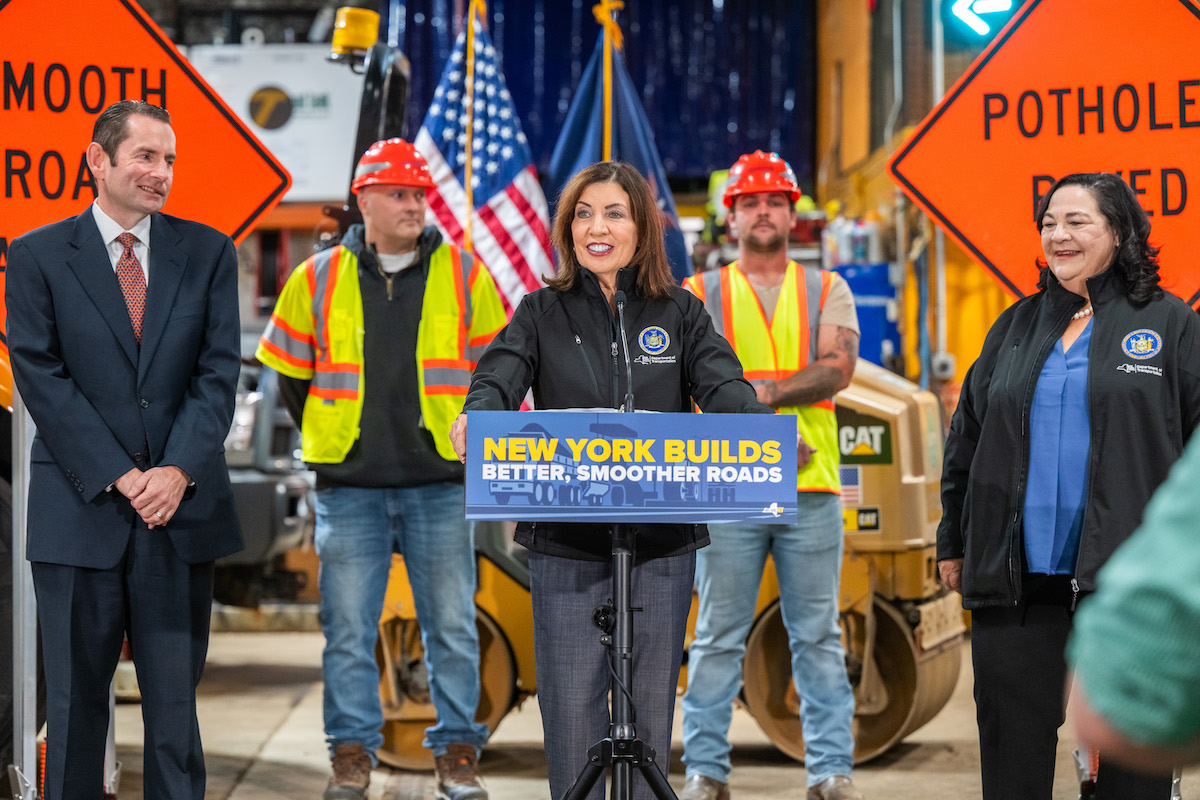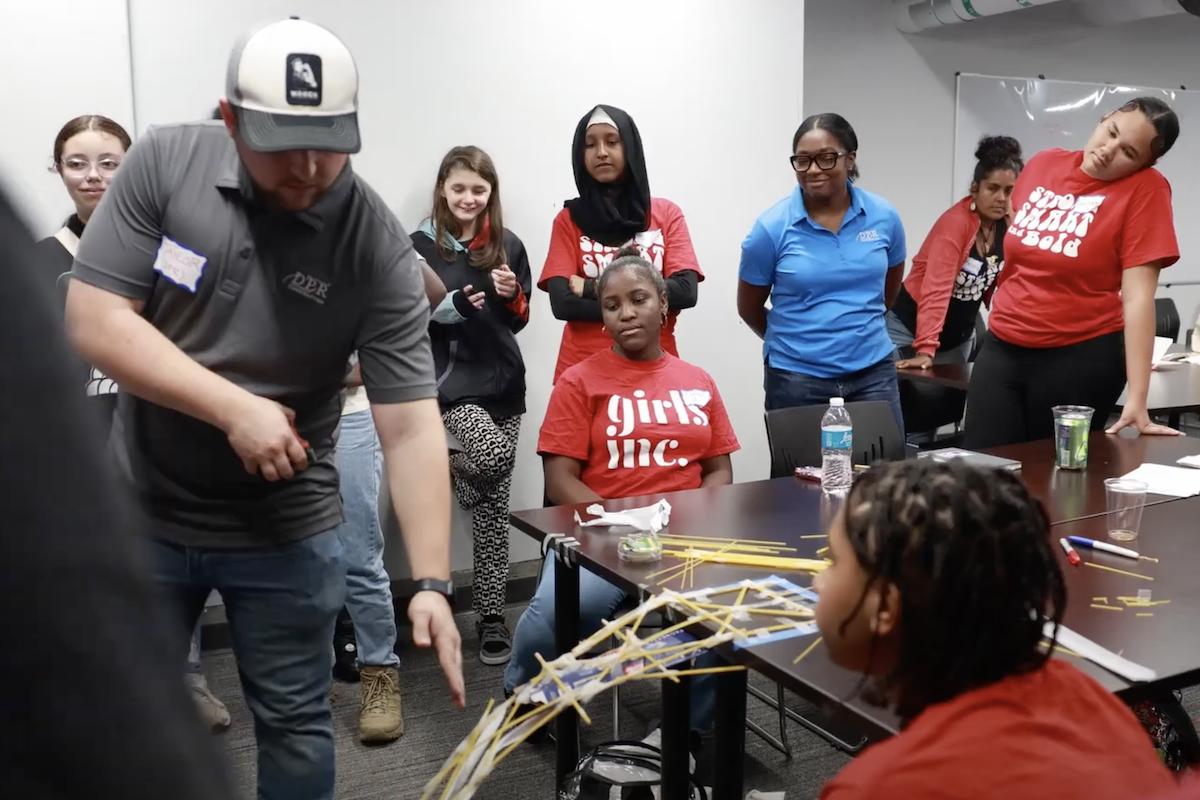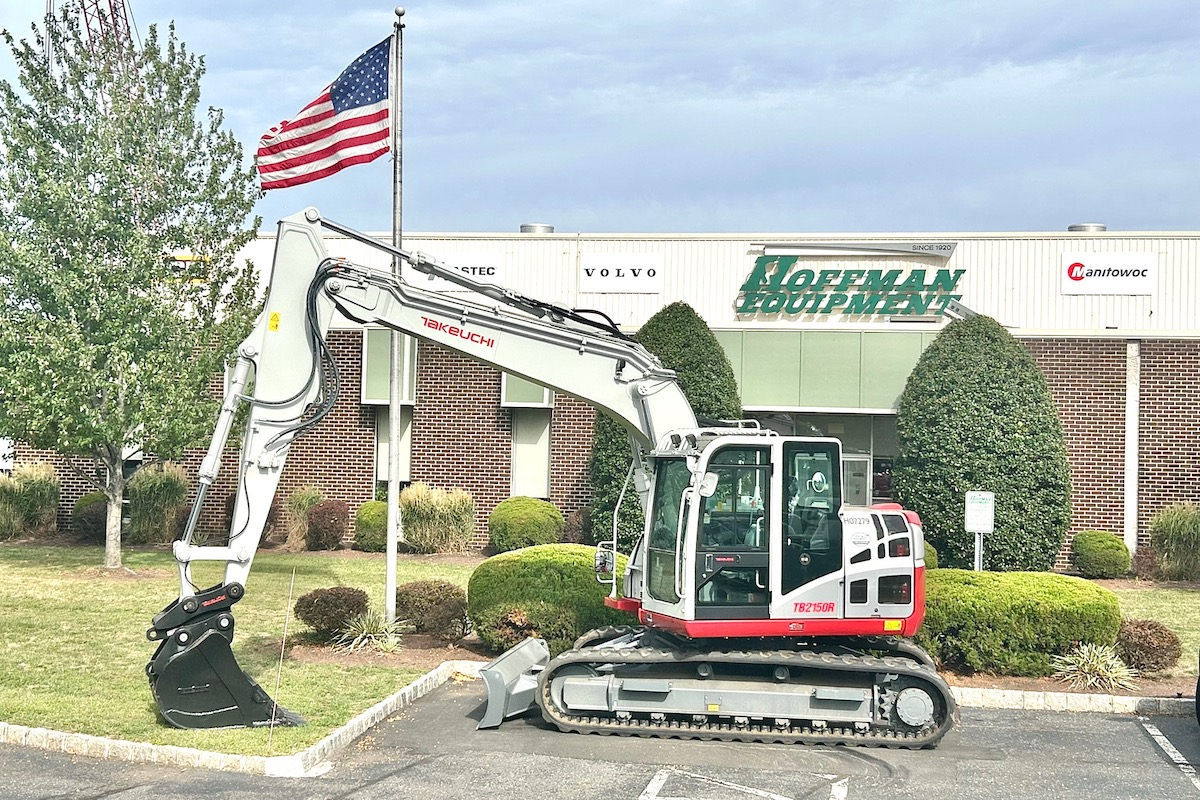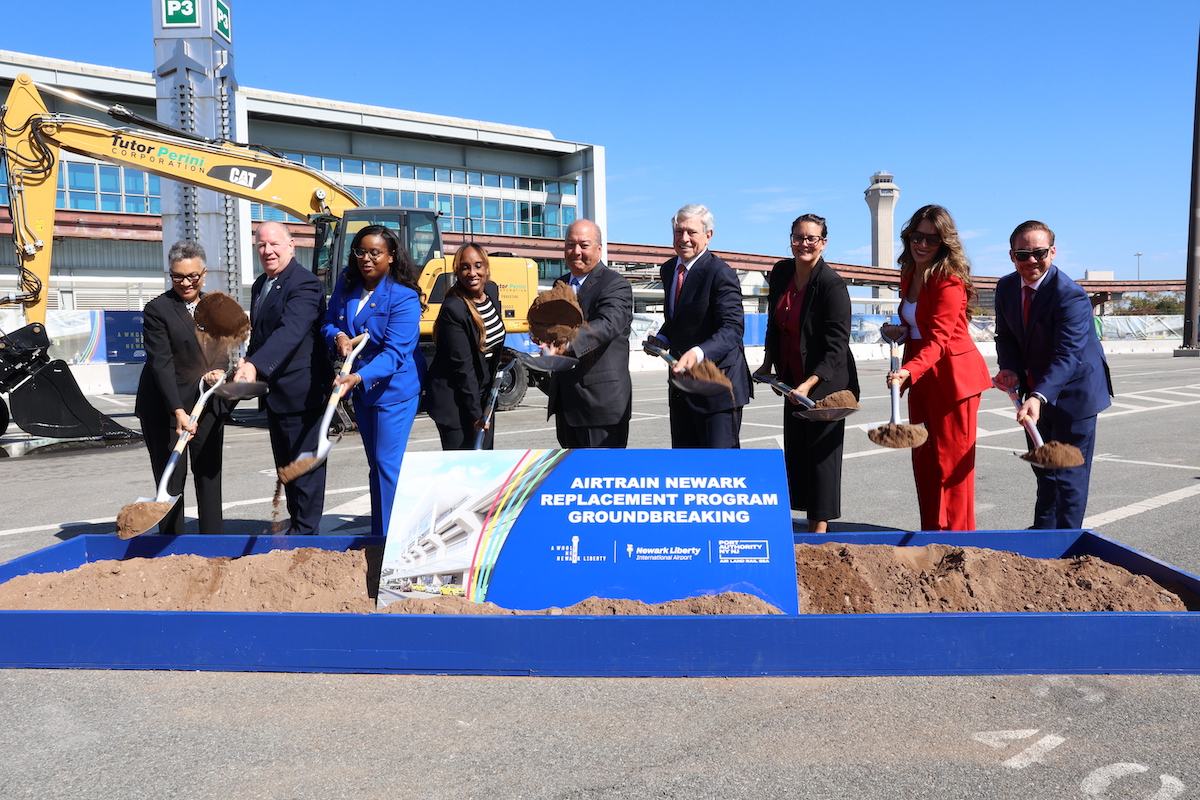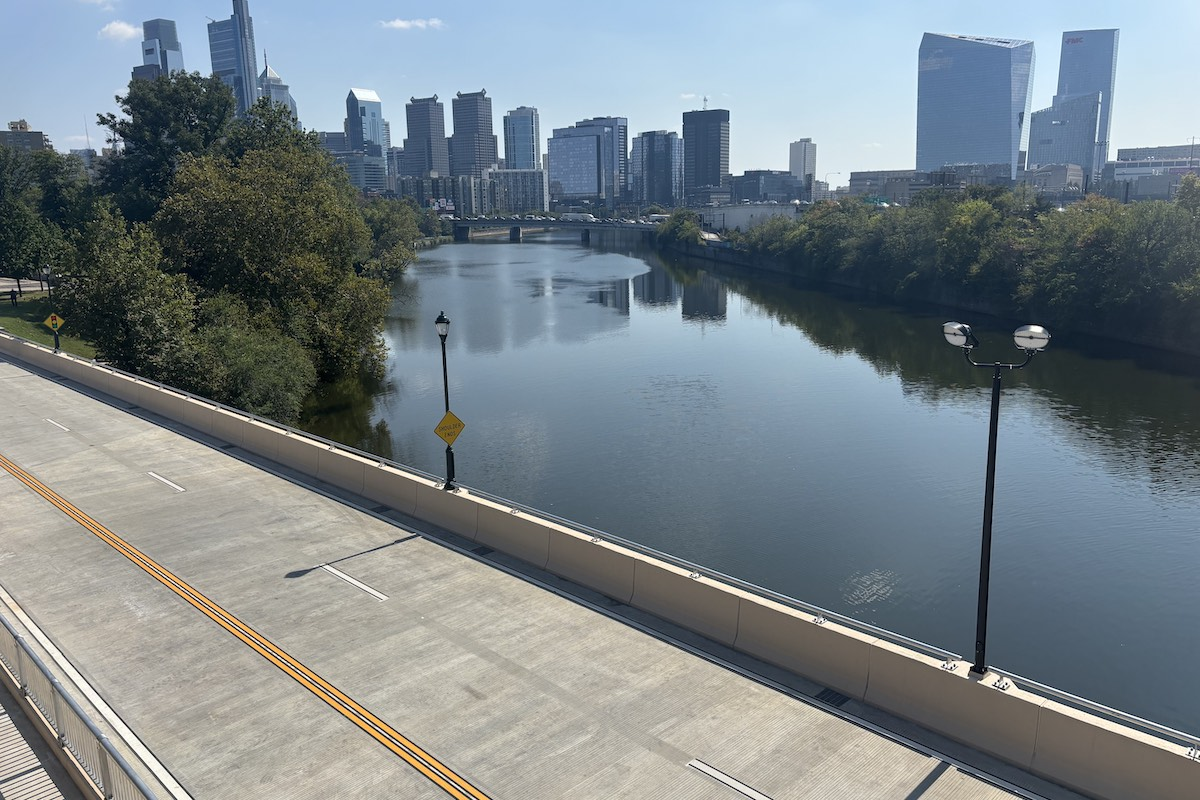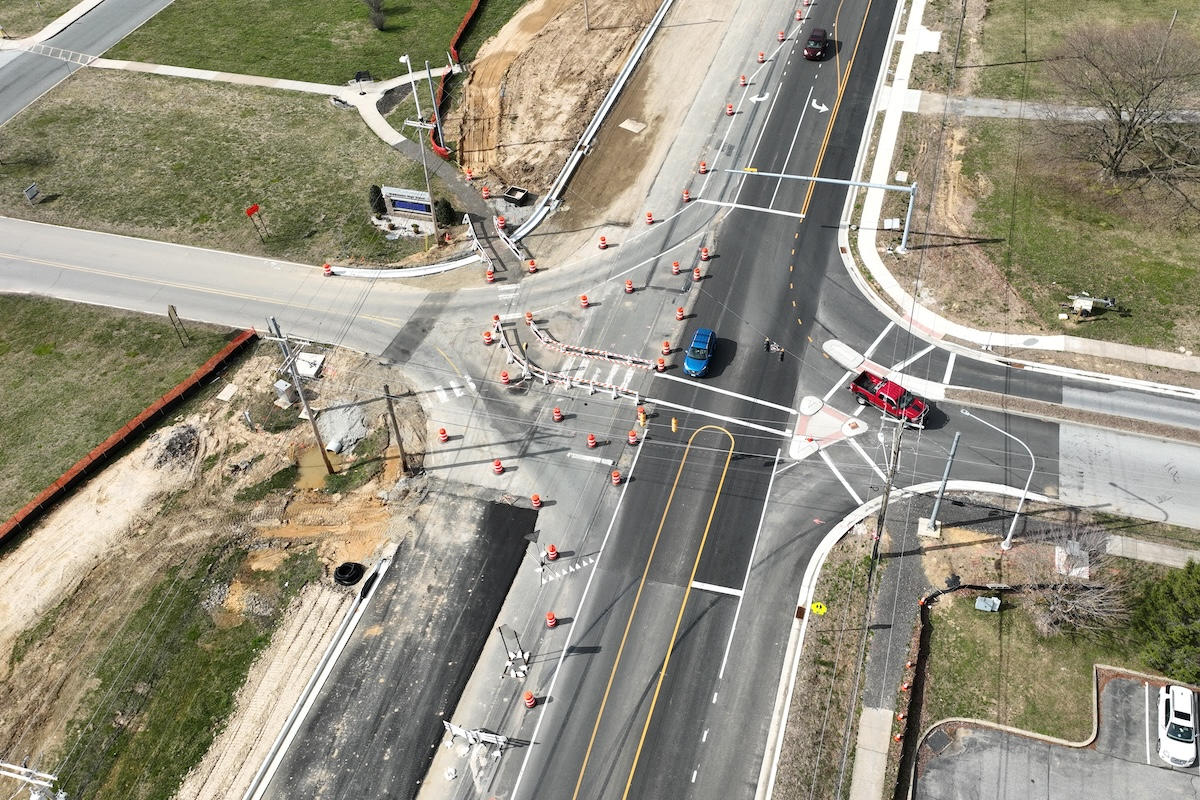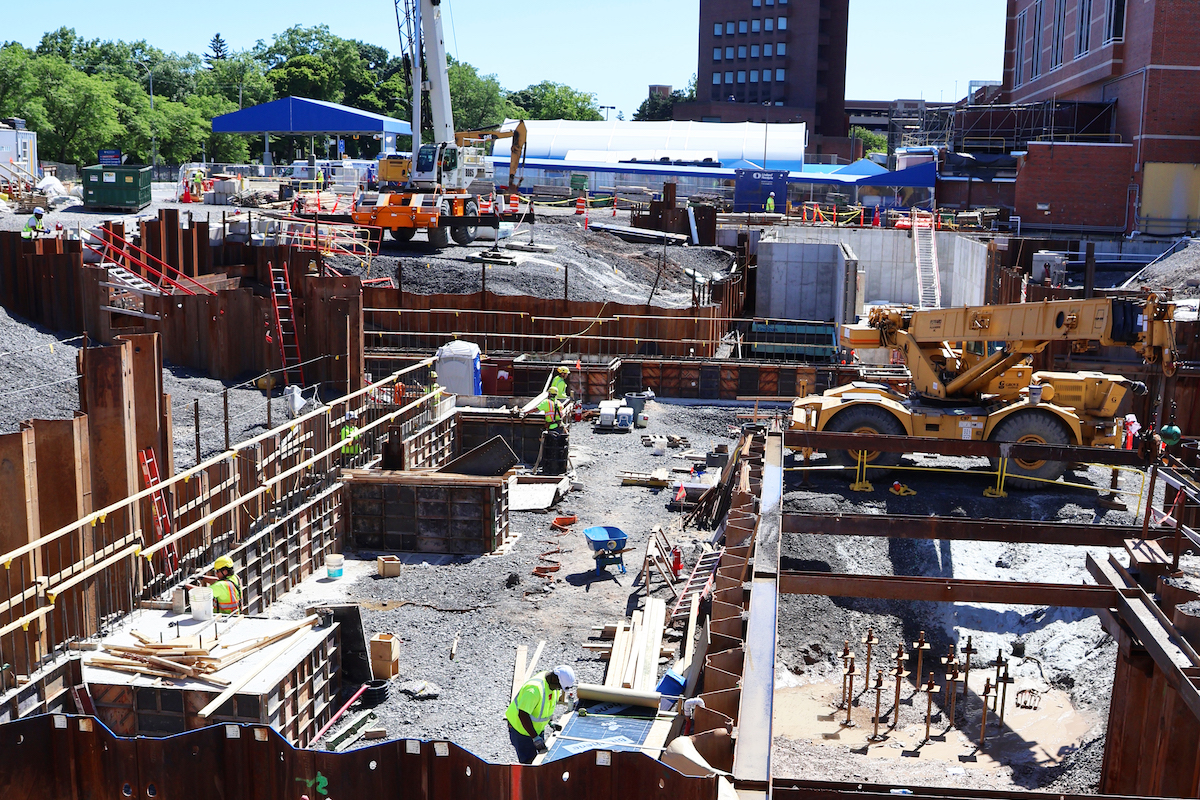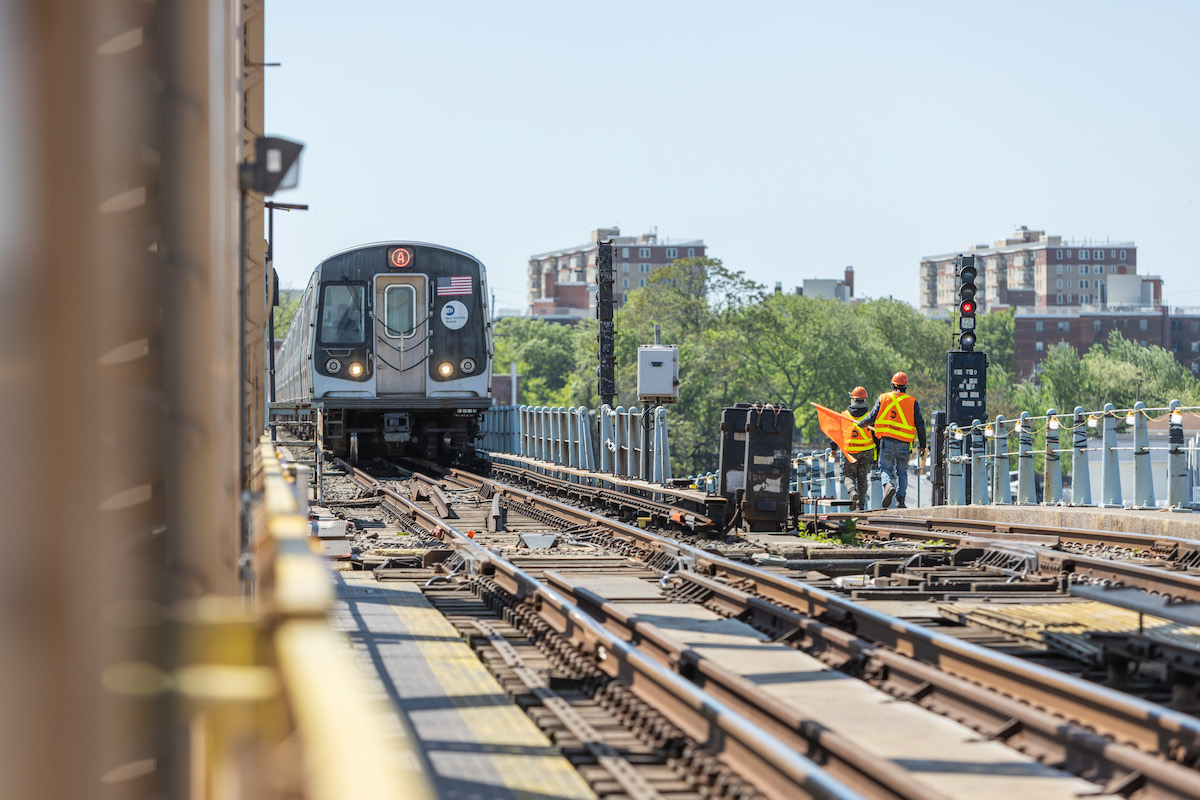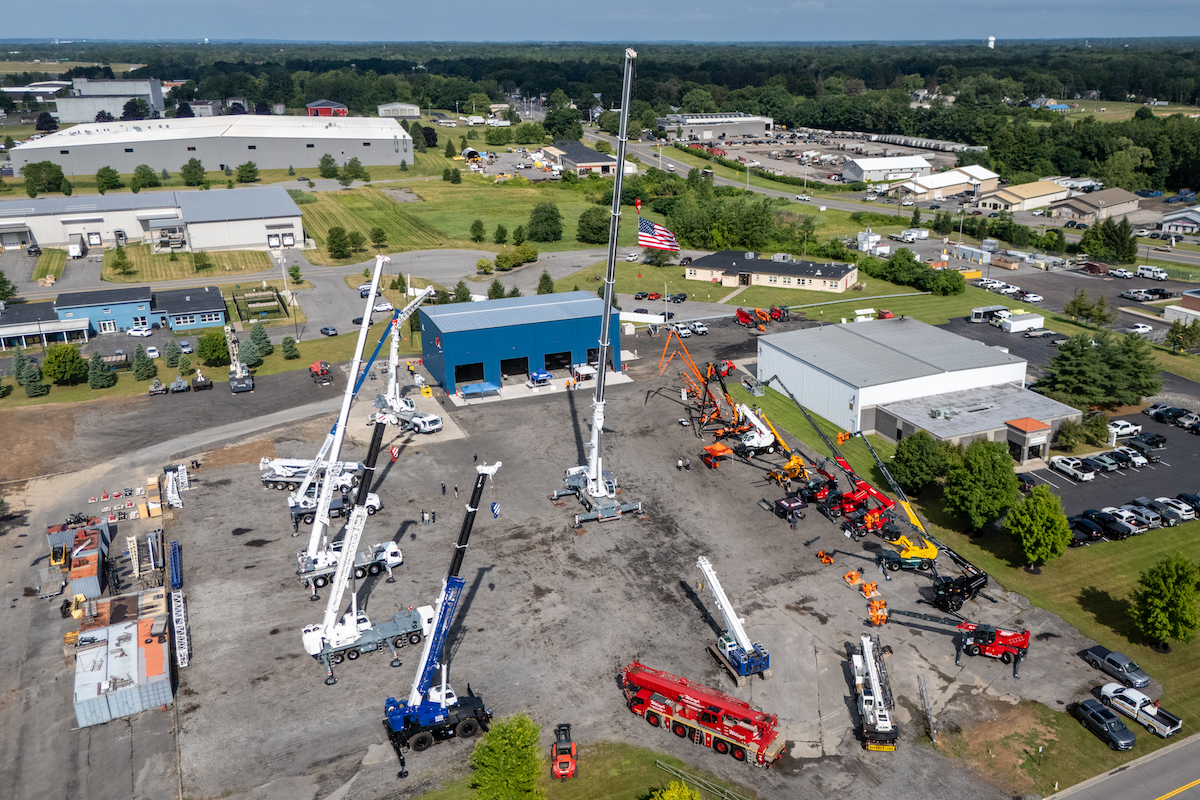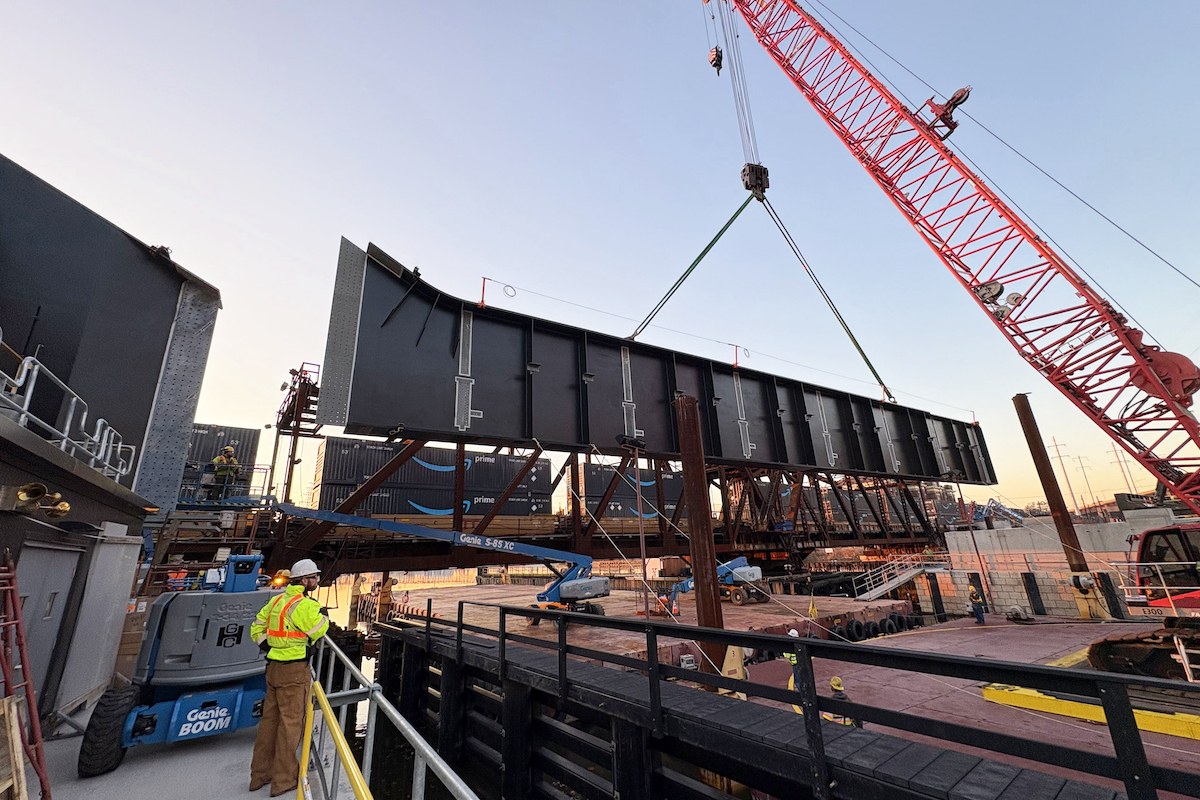“Thanks to the leadership of Governor Abbott and our Texas Legislature, Texas continues to see growth in the transportation investments needed to support a world-class transportation system focused on safety and congestion relief,” said TxDOT Executive Director Marc Williams, PE. “This program will benefit all Texans for years to come in our rural, urban, and metropolitan areas. TxDOT is putting these resources to work with a record number of projects aimed at improving safety and saving lives on our roadways.”
“The FY 2024-2025 biennial budget reflects a significant investment in our state’s multimodal transportation and freight systems, increasing funding for rural and small urban transit, maritime ports, rail, and general aviation,” Williams said.
“The future is very bright for transportation infrastructure in Texas,” said State Senator Robert Nichols, Chairman of the Senate Transportation Committee and former Member of the Texas Transportation Commission. “It would be fair to say that this was the second-best legislative session for transportation in over a decade — the best being 2013 and 2015 when Propositions 1 and 7 passed. This session, we extended the sunset dates for both propositions and, in doing so, assured TxDOT close to $100 billion in construction funding over the next decade. The legislature also passed Senate Bill 505, which addresses current and anticipated transportation funding gaps by creating a state electric vehicle registration fee. SB 505 requires an owner of an electric vehicle to pay an additional fee at the time of the initial two-year application for new electric vehicle registration levied at $400 and $200 for the ongoing yearly registration.”
“I also think it was the best legislative session in half a century for water-based transportation,” Nichols said. “The budget included $200 million for port improvements and $400 million for improving the waterways themselves. To my knowledge, the state has never helped pay for these things, but has always recognized the value of the navigation system Texas has.”

| Your local Trimble Construction Division dealer |
|---|
| SITECH Allegheny |
| SITECH Northeast |
According to Nichols, while several bills were passed that benefitted funding and TxDOT administration, the following were considered to be the most beneficial for the roadway construction industry.
Senate Bill (SB) 1021 increased the value of contracts for highway improvement projects and building construction contracts that a TxDOT district engineer may award locally from an estimated amount of less than $300,000 to less than $1 million. Increasing the allowable local let amount will allow locally let contracts to cover a larger geographical area rather than break into smaller contracts, resulting in fewer contracts.
“SB 1021 increased TxDOT’s Local Letting cap amount from $300,000 to $1 million to keep up with inflation and help ensure that these smaller highway projects are let and delivered expediently and under the control of the local TxDOT district,” Williams said.
House Bill (HB) 1 appropriated more than $32.74 billion, or 87.9 percent, of TxDOT’s total budget to highway improvement project development and delivery as well as contracted and routine public roadway maintenance. HB 1 also authorized an additional 349 Full-Time Equivalents (FTE) to TxDOT’s existing FTE limit for the FY 2024-2025 biennium. TxDOT plans to use most new FTE authority to support the department’s 25 districts for planning, engineering, project development, and delivery.
HB 2230 amended Section 316.092(b), Government Code, requiring transfers from the Economic Stabilization Fund to the State Highway Funds now set to expire after the final transfer of Proposition 1 funds in fiscal year (FY) 2043 (extending Proposition 1 by eight years).
SCR 2 extends both funding components of Proposition 7 (sales and use tax and motor vehicle sales and rental tax revenues) for 10 years beyond their original expiration dates.
HB 4015 requires rail safety fee revenues to be deposited directly to the credit of the State Highway Fund rather than the General Revenue Fund, preventing these revenues from potential statewide budget cuts and other impacts.
“I am proud to have been a part of it [the legislative session], but it would not have happened without the support of Lt. Governor Patrick, Governor Abbott, and House leadership all coming together,” Nichols said. “It was an outstanding session for transportation.”
“The 2024 Unified Transportation Program identifies investments in transportation projects totaling a new record of approximately $100 billion in infrastructure improvements over the next 10 years, positioning Texas to fully utilize anticipated increases to the state’s Proposition 1 and 7 funds dedicated to our transportation projects,” Texas Transportation Commissioner J. Bruce Bugg said.
While most of the 12 funding categories in the UTP showed modest gains over the 2023 UTP, funding was increased significantly in three.
The FY 2024 UTP Category 4, “Statewide Connectivity,” at $17.8 billion provides $5.5 billion more than the previous FY 2023 UTP, a 45 percent increase. Regional connectivity projects are not allocated to TxDOT districts or MPOs. Projects are selected in a competitive statewide process. Projects in Category 4, “Rural,” are selected by TxDOT’s TPP Division. The Bryan, Corpus Christi, and Yoakum Districts came in as the largest TxDOT district recipients. Category 10, “Supplemental Transportation Projects,” gained a 40 percent increase over 2023, up to $2.4 billion. Category 11, “District Discretionary,” also shows a significant increase by $2.5 billion, more than a 50 percent increase over the previous FY 2023 UTP.
The 88th Texas Legislature provided the following Maritime Infrastructure Program Grants to projects across the state. The connectivity projects are advertised and contracted by either the port authorities (off-system) or TxDOT (on-system).
- Port of Houston received $69.3 million for the Barbours Cut Terminal Container Wharf Upgrade. The project, which is both on- and off-system, will provide new roadways, direct connectors, and intersection improvements.
- Board of Trustees of the Galveston Wharves received $50.1 million for the repair and reconstruction of West End Cargo, including bulkhead replacement and concrete paving. The off-system project will increase Pelican Island Bridge capacity, reconstruct a bridge, and build a new roadway.
- Port of Beaumont Navigation District of Jefferson County received $29 million for the South End Queuing Area. The off-system project includes South End Queuing construction, bridge reconstruction, and a new roadway.
- Port of Corpus Christi Authority received $27 million for bulkhead materials terminal facility improvements. The off-system project includes railroad crossings, street reconstruction, and improvements.
- Victoria County Navigation District received $26.4 million for the Texas Logistics Center Rail Expansion and multi-modal facility. The off-system project includes constructing a bridge over a railroad and widening a road.
- Orange County Navigation and Port District received $20 million to reconstruct the Transmodal Yard. The off-system project involves truck queuing improvements and utility enhancements.
- Port of Port Arthur Navigation District of Jefferson County received $15 million for a bridge reconstruction and railyard flyover. The off-system project will construct the railyard flyover and make improvements to an interchange.
In addition, Rider 46 to House Bill 1 provided $400 million in general revenue to a dedicated fund in FY 2024 to create low-interest, flexible loans for federally authorized projects to widen and deepen existing ship channels.
Last November, Texas voters approved Proposition 6 to create the Texas Water Fund and authorize a $1 billion appropriation to develop innovative water supply projects that create new water sources in the state, transfer money to certain existing TWDB financial assistance programs, and fund a statewide water public awareness program.
According to the Texas Water Development Board, of that $1 billion appropriated to the new Texas Water Fund, the TWDB must allocate at least $250 million to the New Water Supply for Texas Fund. This new fund is designed to implement innovative water supply strategies such as marine and brackish water desalination; oil and gas produced water treatment projects; and aquifer storage and recovery projects.
The following represents the eight largest projects contained in TxDOT Aviation Division’s CIP for fiscal years 2024 and 2025, based on current knowledge of airport needs and potential projects.
- McKinney National Airport is undergoing a multi-phased, multi-FY expansion, including hangar design and construction; new and rehabilitated taxiway and taxilanes; and a new terminal building with apron paving and passenger parking. The airport will receive $26.5 million in FY 2024 and $78 million in FY 2025.
- Abilene Regional Airport will receive $22.2 million in FY 2024 for improvements relating to the Statewide Fire Fighting Headquarters.
- Denton Enterprise Airport will receive $16.5 million in FY 2024 to reconstruct runway pavement and install a drainage system.
- Hillsboro Municipal Airport will receive $12.9 million in FY 2024 for runway and taxiway reconstruction.
- Big Lake Reagan County Airport will receive $12.9 million in FY 2025 to reconstruct a runway and apron and construct a new runway.
- Seminole Gaines County Airport will receive $12.1 million in FY 2025 to reconstruct a runway, apron, and taxiway.
- Edinburg South Texas International Airport will receive $11.1 million in FY 2024 to extend a runway.
- Houston George Bush Intercontinental has awarded contracts to Clark Construction Group and Manhattan Construction Co. for their 40-gate Terminal B Transformation project.
- Dallas Fort Worth International awarded its Terminal F Phase 1 CMAR project to the Archer Western/Phillips/May/Reyes Group Joint Venture.
- Austin-Bergstrom International plans to issue their CMAR package for new Concourse B and underground tunnel in February.
Other capital projects involving Texas’ major international airports this year include:
- Austin-Bergstrom International: New Concourse B and underground tunnel; campus-wide utility infrastructure; Barbara Jordan Terminal optimization; Arrivals and Departures Hall; garage demolition; roadways and utilities; and surface parking construction
- Houston George Bush Intercontinental: New administration office building, Terminal A gate reconfiguration, and various roadwork
- Houston William P. Hobby Airport: Sanitary sewer lines replacement
- Dallas Fort Worth International: Passenger boarding bridge replacements and Terminal D bus station construction
Project Location: I-35 in Travis County (Austin District)
Estimated Cost: $1.45 billion
Project Delivery Method: Design-Bid-Build
Projected Let Date: April 2024
Project Description: This project will reconstruct I-35; add two northbound and two southbound non-tolled managed lanes; construct bypass lanes, structures, drainage, and shared use paths; and reconstruct intersections, ramps, general purpose lanes, and frontage roads.
#2
Project Location: I-35 in Travis County (Austin District)
Estimated Cost: $748.2 million
Project Delivery Method: Design-Bid-Build
Projected Let Date: July 2024
Project Description: This project will construct the east drainage tunnel.
#3
Project Location: IH 10 in Colorado County (Yoakum District)
Estimated Cost: $503.2 million
Project Delivery Method: Design-Bid-Build
Projected Let Date: May 2024
Project Description: This project will add two lanes to convert the road to a four-lane to six-lane divided facility including widening pavement, median construction, realigning the roadway, interchange improvements, standard upgrades, constructing an interchange, and proposed drainage modifications.
#4
Project Location: SH 6 in Brazos County (Bryan District)
Estimated Cost: $471.9 million
Project Delivery Method: Design-Bid-Build
Projected Let Date: December 2024
Project Description: This project will widen the freeway facility from four to six lanes, improve frontage roads, add local access lanes, and add bicycle/pedestrian facilities.
#5
Project Location: IH 35 in Denton County (Dallas District)
Estimated Cost: $469.3 million
Project Delivery Method: Design-Bid-Build
Projected Let Date: April 2024
Project Description: This project will reconstruct and widen four to six lanes of rural freeway with ramp modifications and four- to six-lane continuous frontage roads.
#6
Project Location: IH 10 in Jefferson County (Beaumont District)
Estimated Cost: $450 million
Project Delivery Method: Design-Bid-Build
Projected Let Date: May 2024
Project Description: This project will widen the freeway from four to six lanes and reconstruct the interchange.
#7
Project Location: IH 35 in Cooke County (Wichita Falls District)
Estimated Cost: $323.5 million
Project Delivery Method: Design-Bid-Build
Projected Let Date: April 2024
Project Description: This project will widen the freeway facility from four to eight lanes.
#8
Project Location: SH 20 in Harris County (Houston District)
Estimated Cost: $312.8 million
Project Delivery Method: Design-Bid-Build
Projected Let Date: August 2024
Project Description: This project will reconstruct existing mainlanes and existing HOV lanes to raise the roadway above the floodplain and construct a new shared-use path along White Oak Bayou.
#9
Project Location: IH 30 in Tarrant County (Fort Worth District)
Estimated Cost: $272 million
Project Delivery Method: Design-Bid-Build
Projected Let Date: July 2024
Project Description: This project will reconstruct and widen four to six mainlanes; reconstruct and widen four-lane discontinuous frontage roads to four- to six-lane continuous frontage roads; and reconstruct SS 580 Interchange.
#10
Project Location: IH 10 in Fort Bend County (Houston District)
Estimated Cost: $250.1 million
Project Delivery Method: Design-Bid-Build
Projected Let Date: November 2024
Project Description: This project will reconstruct and widen four to six mainlanes, add two managed lanes, and add two general purpose lanes.







